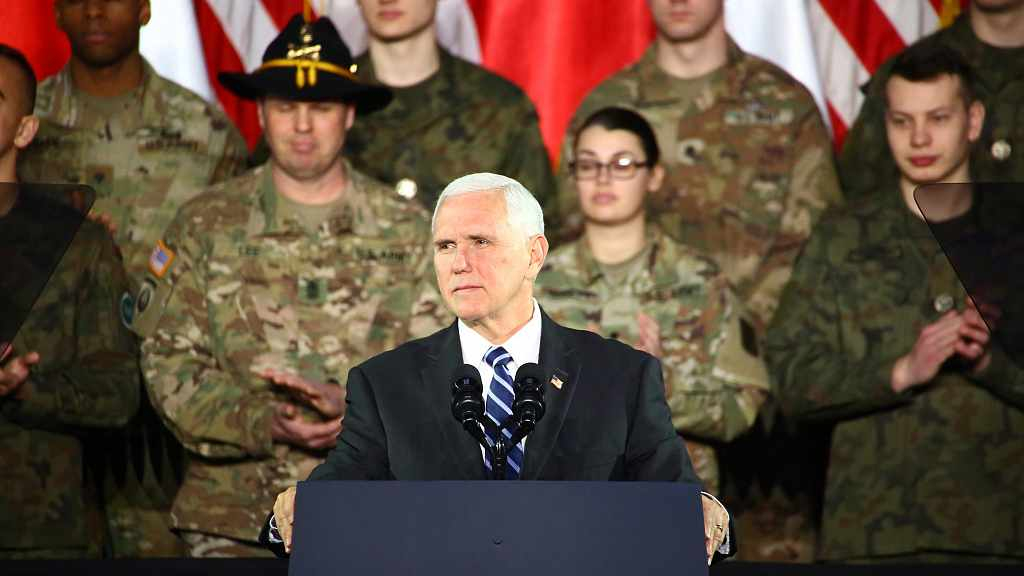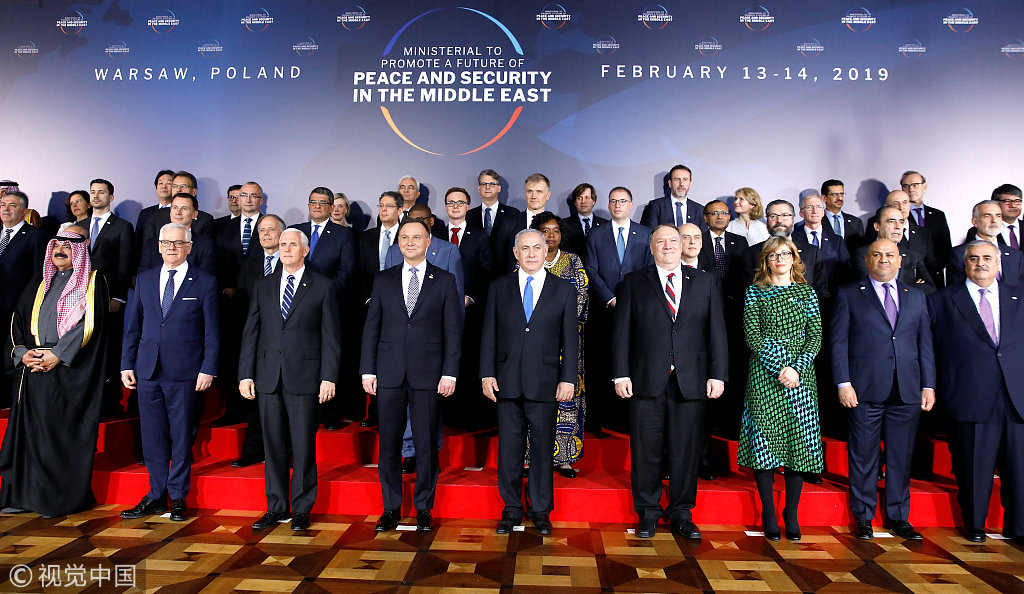
World
12:18, 14-Feb-2019
Can the Warsaw meeting on the Middle East produce results?
By Aljosa Milenkovic
03:05

A two-day U.S.-sponsored international conference on "peace and security" in the Middle East got underway in Warsaw, Poland this Wednesday.
While dozens of countries have sent representatives to Warsaw, many important players are not there, either because they weren't invited or declined to go. Many believe this is due to the meeting's agenda and in particular its focus on Iran.
The U.S. has sent its political heavyweights, led by Vice President Mike Pence, followed by the Secretary of State Mike Pompeo, U.S. President's Senior Adviser Jared Kushner and Special Representative for International Negotiations Jason Greenblatt.
A lot of other dignitaries came to Warsaw as well, including Israeli Prime Minister Benjamin Netanyahu. But also, many were absent, with maybe the biggest void in the U.S.-led block being the European Union (EU) countries and the EU itself.
Those were represented mostly by the diplomats of lower levels, but that didn't deter the U.S. in pushing forward with the meeting, particularly because they wanted to broaden the goals of their delegation to strengthening the ties with Eastern European countries, particularly with Poland.

Participants pose for family photo at the Middle East conference at the Royal Castle in Warsaw, Poland, February 13, 2019. /VCG Photo
Participants pose for family photo at the Middle East conference at the Royal Castle in Warsaw, Poland, February 13, 2019. /VCG Photo
That's why as soon as he landed at Warsaw Airport, Pence visited the joint Polish-American military base on the outskirts of Warsaw, together with Polish leader, Andrzej Duda.
The two were present at the signing of the agreement for Poland's purchase of over 400 million U.S. dollars' worth of multiple rocket launcher systems from the U.S., after which Pence explained Washington's vision of "Pax Americana" to the U.S. and Polish soldiers present.
"Just in the past two years, President Trump signed the largest investment in our national defense since the final days of the cold war. We released a national security strategy, advancing peace across the wider world, as well. Peace through American strength and the strength of strong alliances with freedom-loving nations around the world," Pence said.
But it's not all roses
The agenda of the conference sparked a lot of controversies before it began, even in the host country.
"There has been a growing opposition towards this conference, so much so, that just before word of the venue became public, Poland's deputy foreign minister was sent to Iran in order, let's say to appease the Iranian establishment,” Antoni Jakubowski from the Center for Polish-Asian Studies said.
But Tehran wasn't concerned. In fact, Iranian Foreign Minister Mohammad Zarif quickly dismissed the whole conference as a charade, speaking to the journalists in Tehran on Wednesday.
“I don't think it can do anything. It's another attempt by the United States to pursue its obsession with Iran, that is not well-founded and I think the fact that they're not even aiming to produce any agreed text, rather they are just attempting to make a statement by themselves on behalf of everybody indicates that they don't even believe it's a serious affair,” Zarif said.
In the meantime, the conference's real work begins on Thursday, as that is when the closed door meeting start.
However, the true worth of the conference will be difficult to quantify, considering the absence of so many key players, from Turkey, Iran and Lebanon in the region, to more global powers like China and Russia.

SITEMAP
Copyright © 2018 CGTN. Beijing ICP prepared NO.16065310-3
Copyright © 2018 CGTN. Beijing ICP prepared NO.16065310-3